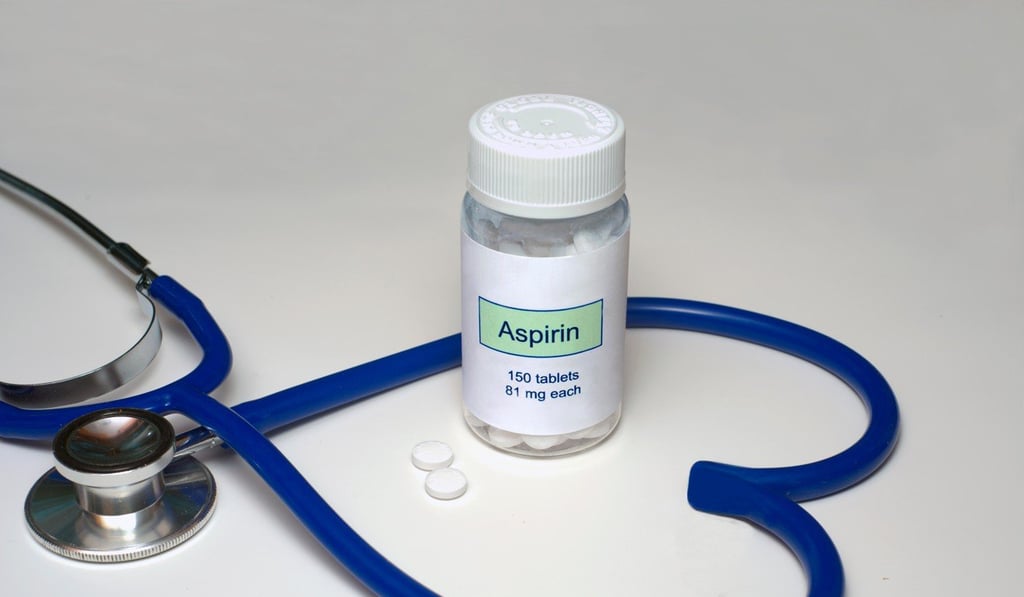The pros and cons of a daily aspirin: good for heart disease but it raises risk of internal bleeding
- Aspirin thins the blood, which helps against heart disease, but can exacerbate bleeding in the brain, stomach and intestines
- The pros are cancelled out by the cons, according to a recent review of studies

Should healthy people take aspirin to ward off heart disease? The notion has been controversial, and the medical advice mixed.
But a recent review of scientific data on the topic showed that any benefits are slight, and are counterbalanced by a matching rise in bleeding risks.
Aspirin is a blood thinner and can help prevent clots that may lead to heart attack or stroke. But aspirin also boosts the risk of haemorrhage in the brain, stomach and intestines.
“When considering the totality of evidence, cardiovascular benefits associated with aspirin were modest and equally balanced by major bleeding events,” said the report in the Journal of the American Medical Association.

The review examined 10 prior studies involving more than 164,000 people with an average age of 62.